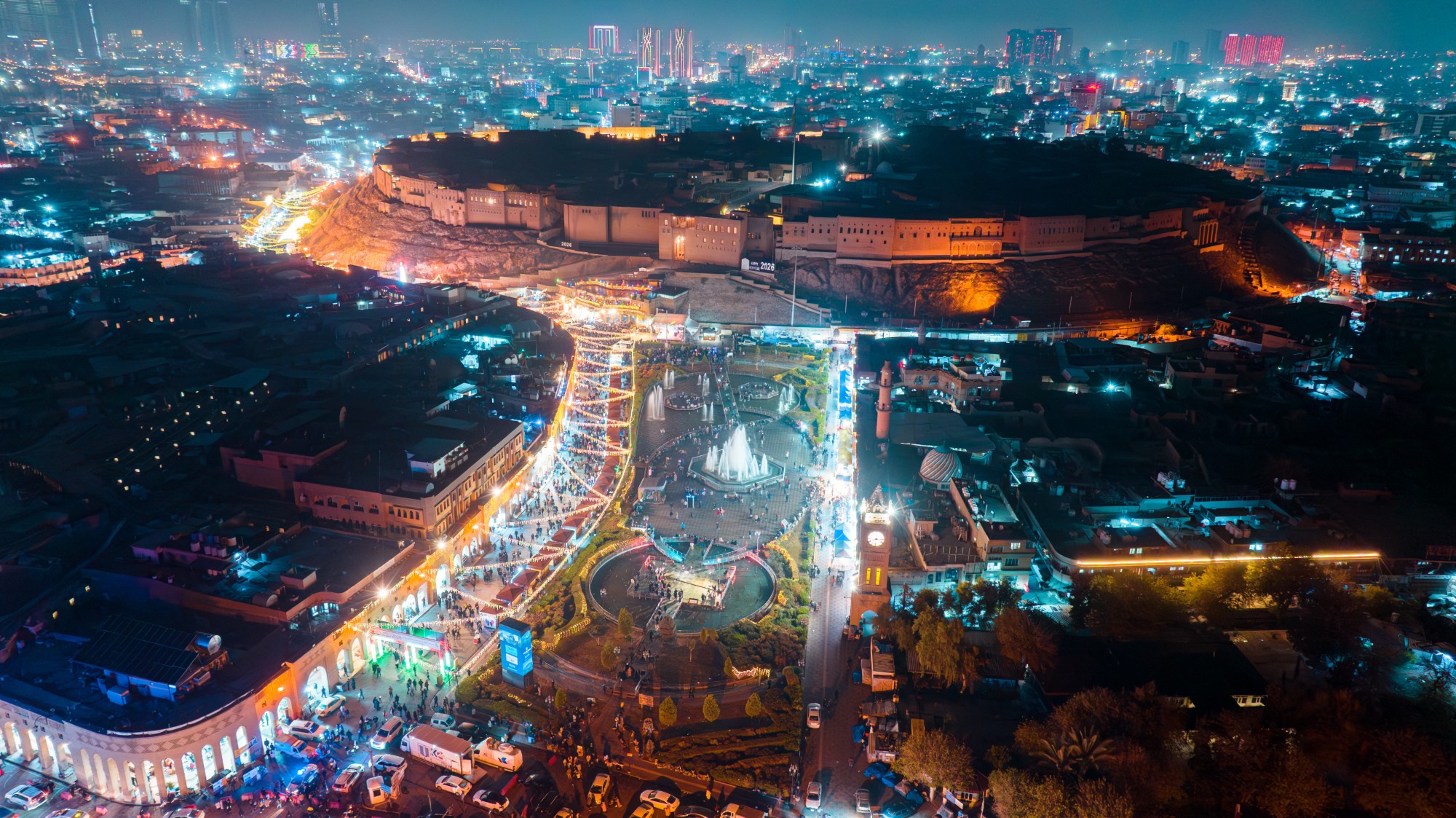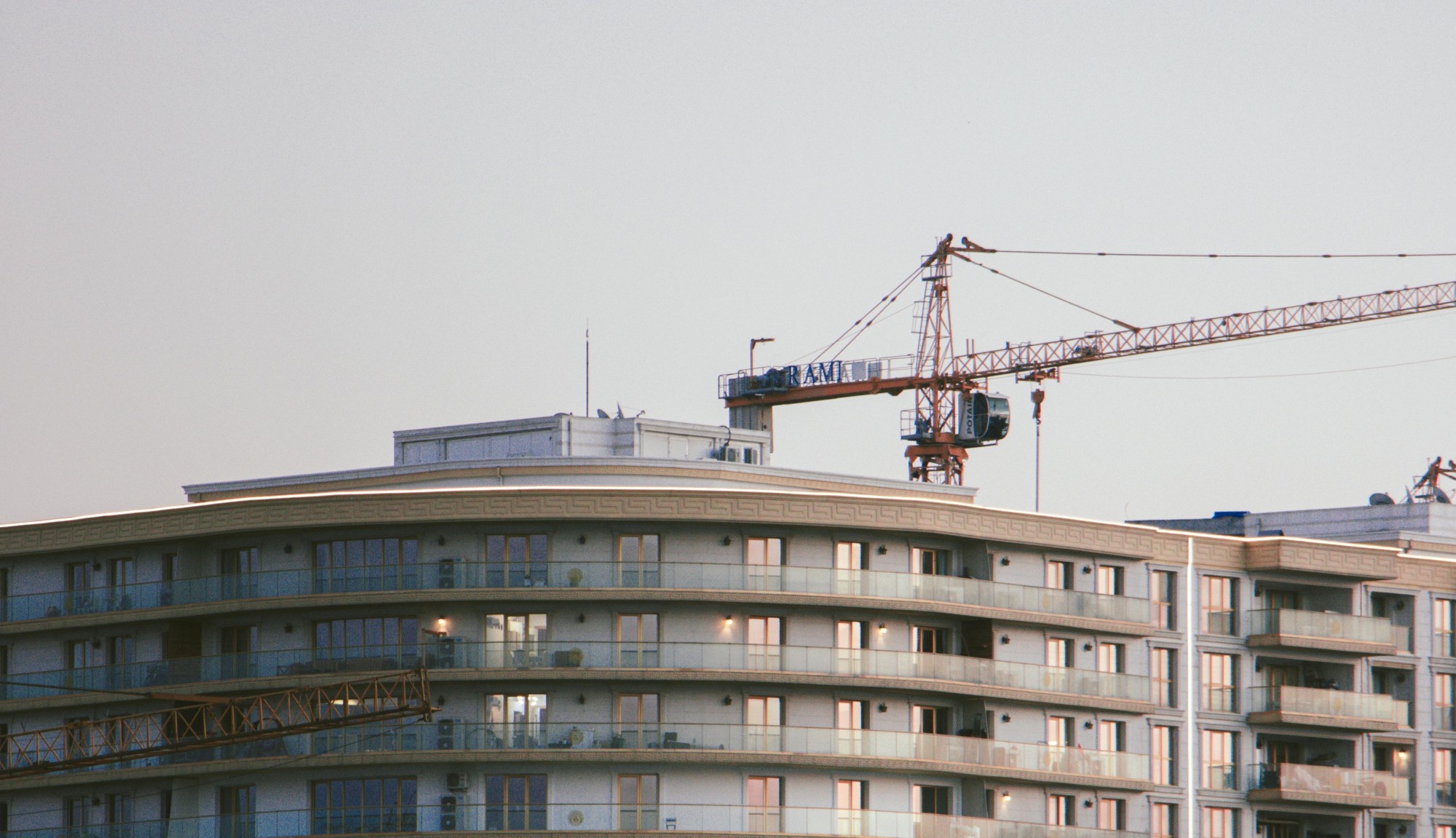Wahhab Hassoo, a 28-year-old Yezidi from Sinjar, has lived in the Netherlands since 2012. He recently ran as a parliamentary candidate in the general elections held on November 22 as part of the New Social Contract (NSC) party, led by former Christian Democrat Pieter Omtzigt. Omtzigt's party emerged a significant winner in the Dutch elections, securing the fourth position with 20 seats. However, Hassoo himself was not elected.
“I fled to the Netherlands in 2012, when I was 17, due to persecution and the uncertain circumstances in my home country, including the rise of ISIS and the genocide against the Yezidi community,” he told Kurdistan Chronicle. “Before coming to the Netherlands, I lived in a small village in the northern part of Sinjar called Snuny.”
“However, life there became increasingly difficult due to the conflict and threats that we faced. Therefore, my family and I had to flee to the Netherlands, seeking a better future and a safer environment to continue our lives.”
He has not returned to Sinjar since 2012 due to security concerns.
Although Hassoo initially studied aviation and wanted to become a fighter pilot, he said that the challenging circumstances in his home country – namely the impact of the ISIS genocide in 2014 against the Yezidis on his life and family – led him to shift his focus toward human rights activism.
“These events compelled me to enter the realm of human rights advocacy. The profound experiences and challenges that I faced influenced my decision to pursue a degree in global politics, aligning my path with advocacy and politics rather than aviation.”
From model to activist
Interestingly, Hassoo was a model for a brief stint after being scouted and becoming a male beauty pageant contestant. He pulled out of the final of Mister World 2017 due to threats but went on to win Mister World Netherlands 2018-19.
“My parents did not want me to do modeling work because it did not align with the conservative Yezidi – or better yet, Middle Eastern – culture. In that region, only women can do modeling work, and even that is considered taboo,” he said.
He eventually decided to stop modeling work and focus on his studies, Yezidi rights, and politics. “I continue to pursue modeling work, albeit with limitations imposed by security concerns. During my participation in the Men Universe competition representing Iraq, which was prior to obtaining a Dutch passport, I encountered threats from some individuals who were upset seeing a man represent Iraq in a modeling event,” he said.
“This challenging situation underscores the delicate balance between my modeling aspirations and making sure that I am safe.”
Putting his modeling career on hold, he has turned to advancing the cause of Yezidi rights, setting up the foundation Netherlands Helps Yezidis (NLHY). “Through my involvement with NLHY, I have actively worked to support the Yezidi community in the Kurdistan Region of Iraq (KRI) and Sinjar. Our foundation is dedicated to assisting Yezidis, providing aid, and raising awareness about their plight,” Hassoo said.
“We focus on addressing the needs of the Yezidi population, both in the immediate aftermath of crises and in the long-term process of recovery and rebuilding. We, as an organization, recently collaborated with various other organizations, such as the Barzani Charity Foundation, as well as individuals to contribute to the well-being and empowerment of the Yezidi people.”
“As a result of my efforts and that of a few others, such as the Dutch journalist Brenda Stoter, the Dutch Parliament in 2021 recognized the crimes committed against the Yezidis by ISIS as genocide,” Hassoo said. “This acknowledgment is crucial for seeking justice and holding perpetrators accountable.”
Moreover, he said that the Netherlands has taken steps to address the humanitarian needs of the Yezidi community, contributing to efforts aimed at “resettling some survivors in the Netherlands, as well as rebuilding Sinjar and supporting Yezidi genocide survivors in Iraq and the KRI. “In this regard, the government has passed several resolutions, though they have yet to be implemented,” he added.
In April, together with Dutch-Kurdish filmmaker Reber Dosky, Hassoo visited the parliament to advocate for Yezidi genocide survivors and met with Dutch Foreign Minister Hanke Bruins Slot. Furthermore, he took part in a panel discussion with Dutch Ambassador to Baghdad Hans Sandee during the premiere of Reber Dosky’s film Daughters of the Sun, which delves into the experiences of Yezidi survivors.
However, Hassoo said challenges persist, and continuous advocacy is necessary to ensure that the Yezidis receive comprehensive support.
“The focus should be on addressing the multifaceted issues faced by the Yezidi community,” he said, “including psychology and social support, rehabilitation, and efforts to preserve Yezidi cultural heritage. My ongoing lobbying efforts aim to maintain momentum and encourage sustained commitment from the Dutch government to address the specific needs of the Yezidi people.”
Due to his activism, Hassoo has received significant attention from the Dutch media, including from private Dutch broadcaster RTL Nieuws in September, when he first announced his ambition to join a Dutch political party and became the first in his family to earn a master’s degree.
On October 24, one of his lectures at Camp Westerbork, a former Nazi transit camp in the Netherlands that is now a museum, was canceled due to threats from unknown individuals, an incident that also received media attention. “As an ambassador for the Holocaust and World War II commemoration site Camp Westerbork, the event aimed to shed light on the historical injustices faced by the Jews during the war and the recent tragedies that the Yezidis faced,” he said.
“Unfortunately, due to unforeseen challenges and safety concerns, the lecture had to be canceled. Nonetheless, my dedication to advocating for awareness and remembrance remains unwavering,” he added.
Unexpected candidacy
Samen met @Ayfer_Koc mijn stem uitgebracht
— Pieter Omtzigt (@PieterOmtzigt) November 22, 2023
Mijn keuze: @WahhabHassoo
(#40 van @NwSocContract)
? Carlo ter Ellen pic.twitter.com/HrfXOhDrAn
Even though Hassoo did not win in the November elections, the successful outcome for the NSC is noteworthy. The party is now in talks to possibly join a future Dutch government. “As a party, we got twenty seats. That’s a great victory, going from zero sets to twenty seats,” he noted.
Hassoo underscored that becoming a candidate was a surprise. “I was not expecting to be invited or be on the list to partake in the elections when I applied to join the party.”
However, Hassoo later decided to leave the party after they failed to offer him a job to assist parliament members with policy matters.
“I had applied for a job within the party, but I didn’t get a reply. They used my name and expertise during the elections, and I contributed to the election campaign. But they never took me seriously. So, I made the choice to leave. I was proud to participate in the elections with a new party, but I didn't feel welcome and I am now looking for a job somewhere else.”
He described his journey from seeking refuge in the Netherlands to actively participating in the country’s democratic processes as “a testament to the inclusive nature of our democracy. It shows that individuals with refugee backgrounds not only contribute to society but can also actively engage in shaping the nation's future.”
“My candidacy for the Dutch Parliament represents the diversity and strength that comes from embracing people from all walks of life in our democratic journey in the Netherlands,” he said.

